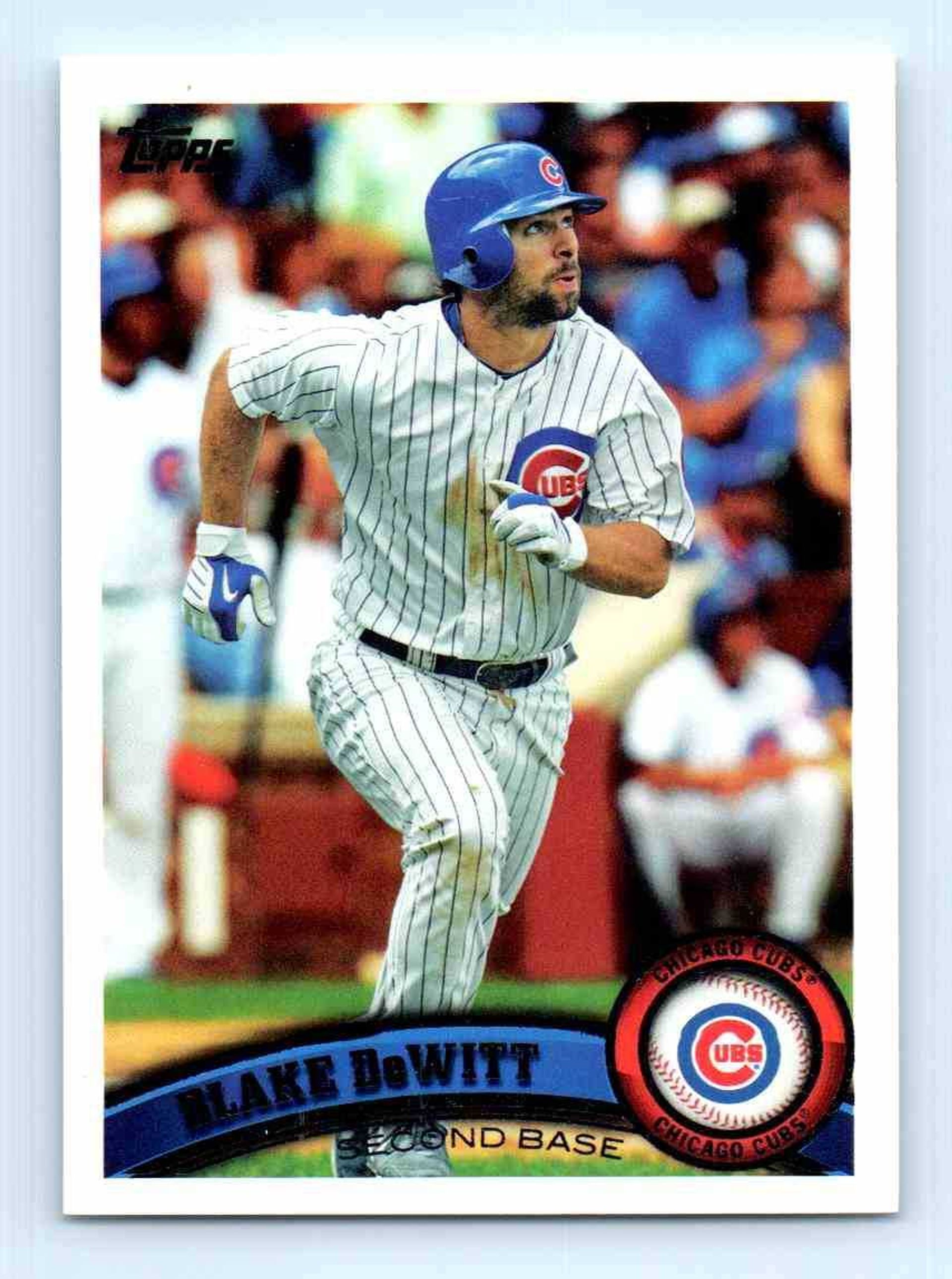.300 Baseball: Former professional baseball player Blake DeWitt talks business and baseball
June 2004 was a big month in the life of Blake DeWitt. The Sikeston, Missouri, native had a strong reputation on the baseball diamond with a sweet left-handed swing. An all-around star athlete, he loved baseball. And on that June day, DeWitt went from small-town ballplayer to first-round draft pick of the Los Angeles Dodgers...
June 2004 was a big month in the life of Blake DeWitt. The Sikeston, Missouri, native had a strong reputation on the baseball diamond with a sweet left-handed swing. An all-around star athlete, he loved baseball. And on that June day, DeWitt went from small-town ballplayer to first-round draft pick of the Los Angeles Dodgers.
The Dodgers signed him -- a $1.2 million signing bonus -- and he was off to the races, making his way to the big leagues during the 2008 season. For more than six seasons, he played for the Dodgers, Cubs and Braves before a nagging back injury cut his playing career short.
Still, DeWitt accomplished what most only dream about: playing professional baseball.
Since the 2013 season, DeWitt has remained around the game but kept a rather quiet profile, helping local kids with baseball lessons and assisting Sikeston High School players.

In January, he put his baseball knowledge to use more formally by opening .300 Baseball in Sikeston. The business name is a nod to one of his goals, which was to have a .300 batting average in Major League Baseball. He didn't reach that goal, but it was a driving factor in starting his business after his professional baseball career.
In what looks like an old warehouse in Sikeston, Missouri, there now resides a baseball facility complete with turf, batting cage and other equipment. DeWitt says he hopes to expand it as his business grows, potentially adding an outdoor space, as well. But at the core is a desire to teach the game, keeping it as simple as possible to help players improve.
"People sometimes try to make this game a lot more complicated than what it is," DeWitt says. "And it is very difficult. But if you don't have a solid foundation of fundamentals in this game, you're going to have a tough time. I make the game as fun as I can for the kids, because I know how hard it is. Everybody's got different ability levels. But everybody can learn the fundamentals."
On this particular day, he's in the batting cage with a youngster. At one point, he stops him and asks what he did on a particular swing. It is part of his technique to get players thinking about what they're doing, not just going through the motions. Learn something, one repetition at a time.
"A kid when he's 8 years old thinks he's already got it figured out, but you watch a big league practice and watch what they're practicing [and they'll say,] 'I didn't know big league players work on that.' Yeah, we work on that kind of stuff every day. You have to have a solid foundation of fundamentals."
DeWitt says he enjoys the strategy of the game and the "grind" of a long season. But with a wife and two kids ages 4 and 1, he's enjoying life at home and helping a wide age range of ballplayers improve their craft. Players from St. Louis; Springfield, Missouri; Northern Illinois; Kentucky; Indiana and, of course, Southeast Missouri, have found their way to .300 Baseball. For some, a stop at his Sikeston operation is possible because of travel team schedules that take them along I-55 and I-57.
DeWitt says he intentionally keeps the learning environment small and quiet with no outside pressure at .300 Baseball. He puts pressure on the athletes in a controlled environment to see how they handle it. It's something like a baseball incubator.
DeWitt was exposed to a number of coaching styles over the years, which contributes to how he now coaches his players.

His first MLB manager was Hall of Famer Joe Torre who, DeWitt says, was even-keeled. He required preparation and performance on the field, but his even temperament put players at ease.
"Joe [Torre] was always the same person," DeWitt says. "I always felt like his presence in the clubhouse always carried over to the team. He wasn't too high, too low."
You could also call DeWitt a student of the game, always trying to learn something new to improve.
"I was always a player that paid attention," he says. "I was always asking questions. I always picked the brains of other players, coaches, opponents."
Business and baseball
While there's certainly a business component to .300 Baseball, for DeWitt the focus is on the sport. His wife, Lauren DeWitt, previously served as executive director of the Sikeston Public Schools Foundation. She resigned in March to help her husband with the baseball business and focus on her real estate work. She handles the schedule; her husband handles the baseball.
DeWitt has also joined the board of First State Community Bank, one of the few non-baseball related activities in which he participates. He says so far there have been more similarities to banking and baseball than differences.
For example, in both baseball and banking, you have to have great leaders and carry yourself the right way, he says.
"Reputation in a small town is a big deal. Everybody knows who everybody is. It's the same thing in baseball. You can develop a bad rap and then all of the sudden, it comes trade time and nobody wants you. You can't go play for a contender because they're going to say, 'Hey, this guy is going to bust this clubhouse up.'"
Other similarities between baseball and business, he says, are discipline, drive and fun.
"It's been fun [serving on the bank board]. Obviously, [it's] a different experience, a different world, and [you're] seeing different things."
Like business, baseball is a game of ups and downs. It's one of the lessons he conveys to his players.
"I'm not going to sit here and lie to you and say you're going to have four hits every game," DeWitt says. "I want you with the confidence that you're going to get four hits every day, but I'm not going to lie to you. It's not going to happen."
Make mistakes. Learn why you made the mistake. And then use that experience to get better. DeWitt adds in his baseball career, it helped when he was able to get over the fear of making mistakes.
"It takes a lot of mistakes to be good at this game," he says. "The game gave me a lot ... You want to give back. And, shoot, there ain't nothing better than see[ing] a kid have success."
Connect with the Southeast Missourian Newsroom:
For corrections to this story or other insights for the editor, click here. To submit a letter to the editor, click here. To learn about the Southeast Missourian’s AI Policy, click here.








